Reusable Menstrual Products
Why Make the Switch?
RANJINI
CHINNMUDALIARCHAVADY, TAMIL NADU
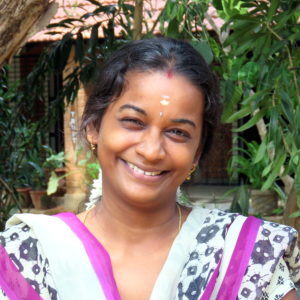
Ranjini is from Chinnamudaliarchavady in Tamil Nadu, which is a close-knit community near the beach. Ranjini has been a part of the Eco Femme team for two years. At Eco Femme she is well known for her love of learning, colourful kolams… and dancing and laughing together!
How did you learn about cloth pads?
I learnt about cloth pads when I applied for a job at Eco Femme! When I first came, I didn’t even know they were making cloth pads.
When I saw the cloth pads, I was shocked. I had never heard of such a thing before! They looked the same as disposable pads, it was exciting! It was also nice to learn that there is a production unit to stitch the cloth pads which gives women jobs.
Before that I used pieces of cloth and disposable pads. I used Whisper when I went to school because I had a white uniform and was worried that cloth would leak. Actually, pieces of cloth are more comfortable than disposable pads, so when I was at home I would still use cloth.
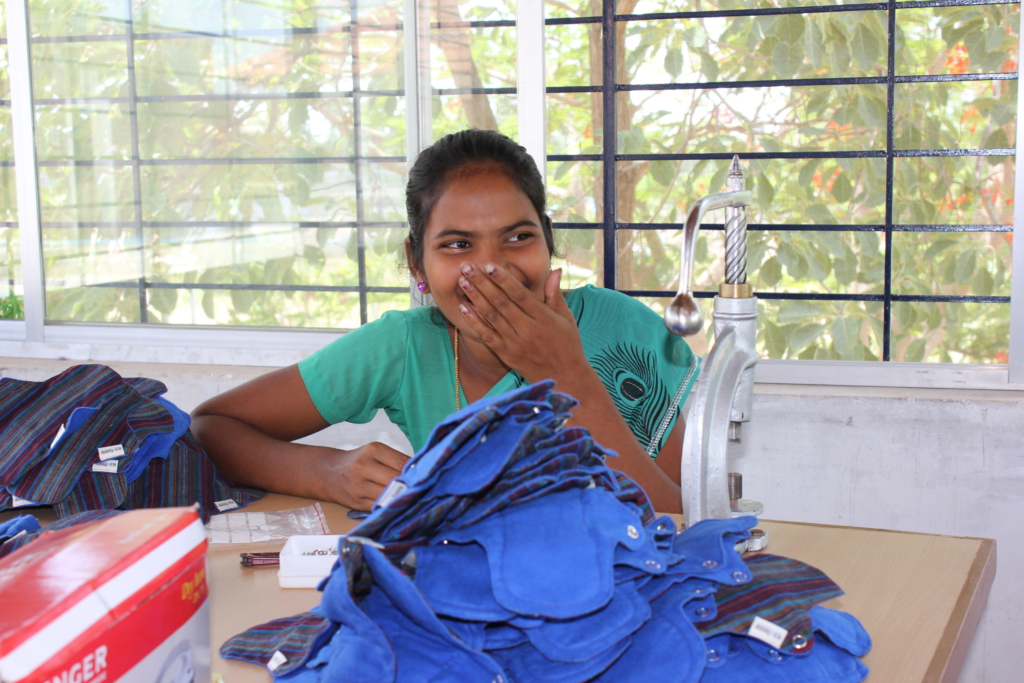
Why did you make the switch to cloth pads?
When I started work, all the akkas who work here at Eco Femme told me they were using the foldable pad and that it is very comfortable. We have different types of cloth pads – ones that look like disposable pads with wings which clip on to your underwear, and also foldable ones which are like how we traditionally use pieces of cloth in India.
I wanted to try them because I was getting rashes from using Whispers and Stayfree disposable pads. When I cycled to school or work, I would get these rashes and it was very difficult. Now, I’m happy that I am free from itchiness and rashes using cloth pads.
One other problem I had was that, when I married and moved to my mother-in-law’s house, I needed to find a place to dispose of my pads. We only use one dustbin – vegetables, plastics, pads, it all goes together. Then we pour kerosene to burn it, which causes pollution. With the cloth pads, I don’t have to worry about getting rid of them like disposable pads.
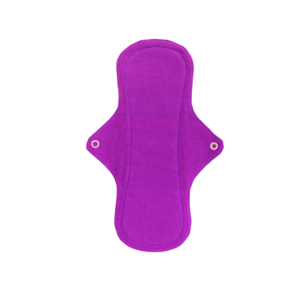
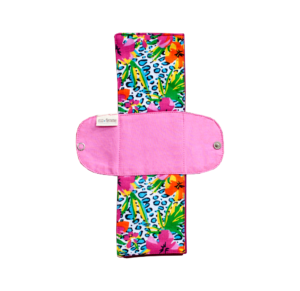
What do you think is the biggest barrier to people making the switch?
I think it would be difficult if you didn’t have a private place to wash your pads. When I studied at school, I didn’t have a place to change and there was no place to wash cloth. It was boys and girls together. At college, it was only girls so it would have been easier, I think.
It might be difficult if you are travelling and need to change. But, if you have used Eco Femme cloth pads, you know you can easily fold these and bring them home to wash. Those who know about cloth pads and how they affect your health and the environment, will be more proactive. Those who don’t know, simply put disposable pads in the dustbin.

Changing cloth pads whilst at work, school or travelling can be easier than you think. Used cloth pads can be stored by folding the two ends towards the middle, fastening the buttoned flaps and placing them in the carry pouch. This is a clean way to carry them home to be washed at your convenience.
What is your experience using cloth pads?
What have you learnt?
Using cloth pads, the biggest change is that I feel comfortable. I feel comfortable with my body. I see how much blood there is during my periods. I can see any changes in colour or smell. I am free from itchiness and rashes – I used to get small wounds from disposable pads that would feel almost like burning.
I find the cloth pads are more absorbent than disposable pads. When I sit or sleep, they don’t spread to my clothes. I don’t get afraid that they leak. I know that when the pad becomes full I can feel it.
I have also learnt that it is more effective to wear tight panties with the cloth pads. For my period time, I have tight underwear to wear with the pads!
What would you say to someone thinking about making the switch?
Cloth is normal. Before we were using pieces of cloth – this is the same. The only difference is that it has a leakproof layer, so you can feel a little fearless!
I don’t try to convince women to use cloth pads. I suggest that they try first. Feel the difference that is happening in your body. What difference do you feel between cloth and disposable pads? If a girl or woman realises what is happening to her, then she can make her choice.
I can give one example. At the annual Sangam event in Auroville, one lady was asking “What’s this? What’s this?”. Like me, she had never seen a cloth pad before. I shared with her what I had learnt – that they are better for our health and our environment. I also told her that we run a Pad for Pad awareness programs about menstruation for school students about what is happening during periods.
I told her… “It is your choice. Try them first, and then you can see the difference and decide”.
She bought one to try, and a few weeks later she stopped me on the road side and said…“I want to buy more cloth pads for my family, and for my team members at work”. I think she realised what is happening during her menstrual cycle – she somehow felt a difference with cloth pads.
It feels really good that I am spreading information to other women and that they feel comfortable to approach me and ask questions. These women, they can pass it on to their daughters, even to their workplace, and the daughters can tell their school friends and so on.
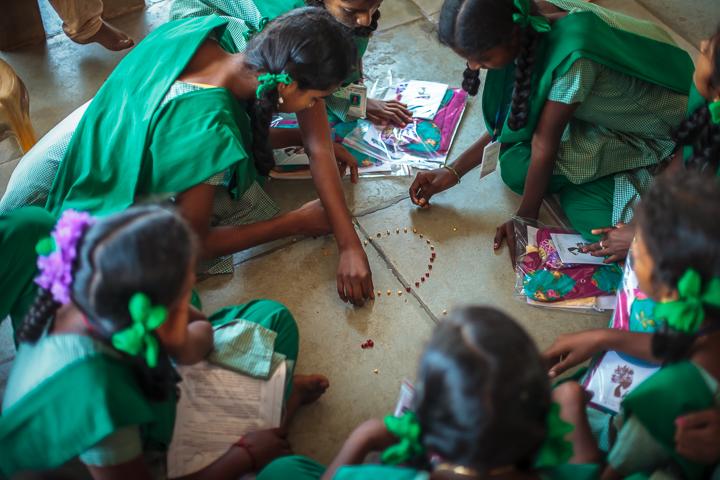
Pad for Pad is Eco Femme’s menstrual health education program for underprivileged girls in India. Pad for Pad creates safe learning spaces and donates a cloth pad kit to each girl. These pads are donated through international sales – each time a pad is sold it contribute towards a pad kit. Indian customers can also choose to make a donation.
Eco Femme is a women-led social enterprise based in Tamil Nadu, India that produces and sells washable cloth pads, provides menstrual health education and opens conversations on menstruation all along the way!
To learn more about our work visit https://ecofemme.org/.
CREDITS
Interviewee: Ranjini / Writer: Lauren Chockman

